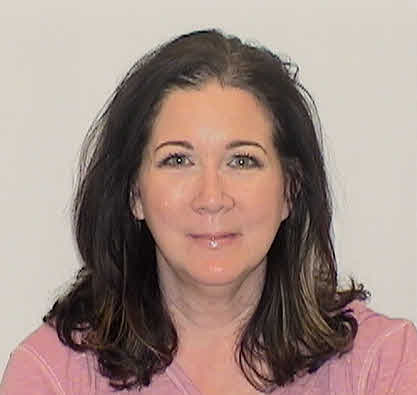Cassandra Jalalpour
MS in Forensic Behavioral Science, Online Campus
California School of Forensic Studies
Cassie Jalalpour didn’t plan on pursuing a career in addiction counseling when she earned her undergraduate degree in criminal justice. But an on-site internship at a women’s prison in their inpatient residential program for drug and alcohol abuse changed her mind. Cassie worked with women during the last six months of their sentences in a voluntary program to help set them up for success as they integrated back into society. The program covered areas such as accountability, conflict resolution, and improving behavior and communication skills. Cassie found the experience truly eye-opening and discovered that she really enjoyed interacting with people who had different experiences and childhoods than she did.
Cassie held that job for six years before relocating to San Diego where she worked at a women’s perinatal, outpatient drug and alcohol treatment program. Unfortunately, when COVID hit, she was put on furlough, but she saw it as an opportunity to figure out the next stage of her career. “Finding a program that was fully online was important to me. I researched a lot of different programs and Alliant was interesting to me because it seemed like a melting pot of both students and teachers. It had the specific type of degree that I was looking for. I didn't want to go into the legal or forensic science part of the field, and I knew that having a better understanding of the population that I wanted to serve would really open the doors for a lot of career opportunities. I didn't know exactly what I wanted to do, but the program director assured us to just have an open mind set on where your career could go and that's what I did.”
While Cassie’s professional certifications and experience gave her a great advantage during her classes, she still found the program was invaluable towards her education and career goals. The program director, Dr. Lissa Parker, was an inspiring role model for Cassie and she loved her professors and their diverse, industry backgrounds which offered so many different viewpoints and experiences for her. “One of my professors was more science research based and there were former police officers and former police chiefs. Every single class at Alliant was so interesting, and I really did love every class. I just thought it was a great program overall.”
Helping these women transition back into society is one of the aspects of her job that Cassie enjoys the most. “There’s no bigger struggle than someone transitioning from a prison to the community, and I think that there's a huge need for people who have my background with both of my degrees, my experience, and knowing as well as I can how to support that population.”
While there are success stories, some of the challenges of Cassie’s work include avoiding burnout and seeing the women struggle with their transition from prison. She works with some of the most vulnerable people in society and knows they have often suffered abuse as a child or even during their incarceration. But the bonds Cassie builds with them are very rewarding. “I just feel really honored that I can work with people from so many different backgrounds. Seeing them get jobs and get their kids back and celebrate one year of sobrietyjust the little milestonesit's fun to be on that journey with them. I would kind of joke with them when they graduated, ‘I hope I never see you again. I mean that with the utmost respect. I hope that you just go out and change the world.’ That's the sign of success.”
At the time of this interview, Cassie was preparing to leave for the month-long federal law enforcement training academy. After working at the state level for years, Cassie was so determined to get her foot in the door in the federal system that she applied for a probation officer assistant position even though she was overqualified for the role. Luckily, they saw what she had to offer and gave her a probation officer position instead. Working in the federal system comes with a new set of rules and laws, and working with different crimes that involve drugs, firearms, and sex trafficking. Additionally, there is no parole in the federal system, so all these aspects are providing a new chapter for her career.
Cassie completed her online master’s in forensic behavioral science program during the pandemic, so the on-site practical experience wasn’t available at the time. But she was still able to gain a lot from her program through her peers and her professors. “I really think that the diversity of the professors gave so much. One of my professors would do a weekly story time where he would just tell us a story from his experience in law enforcement. You just trust that these people know what they're talking about and that they teach you as much as they can. I just owe so much to Alliant. Dr. Parker wrote a letter for me to help me get my current job, and two of my other professors allowed me to put them as references. I would not be where I am without Alliant, my degree, and the support of my professors. They had a huge hand in getting me to where I am today.”

